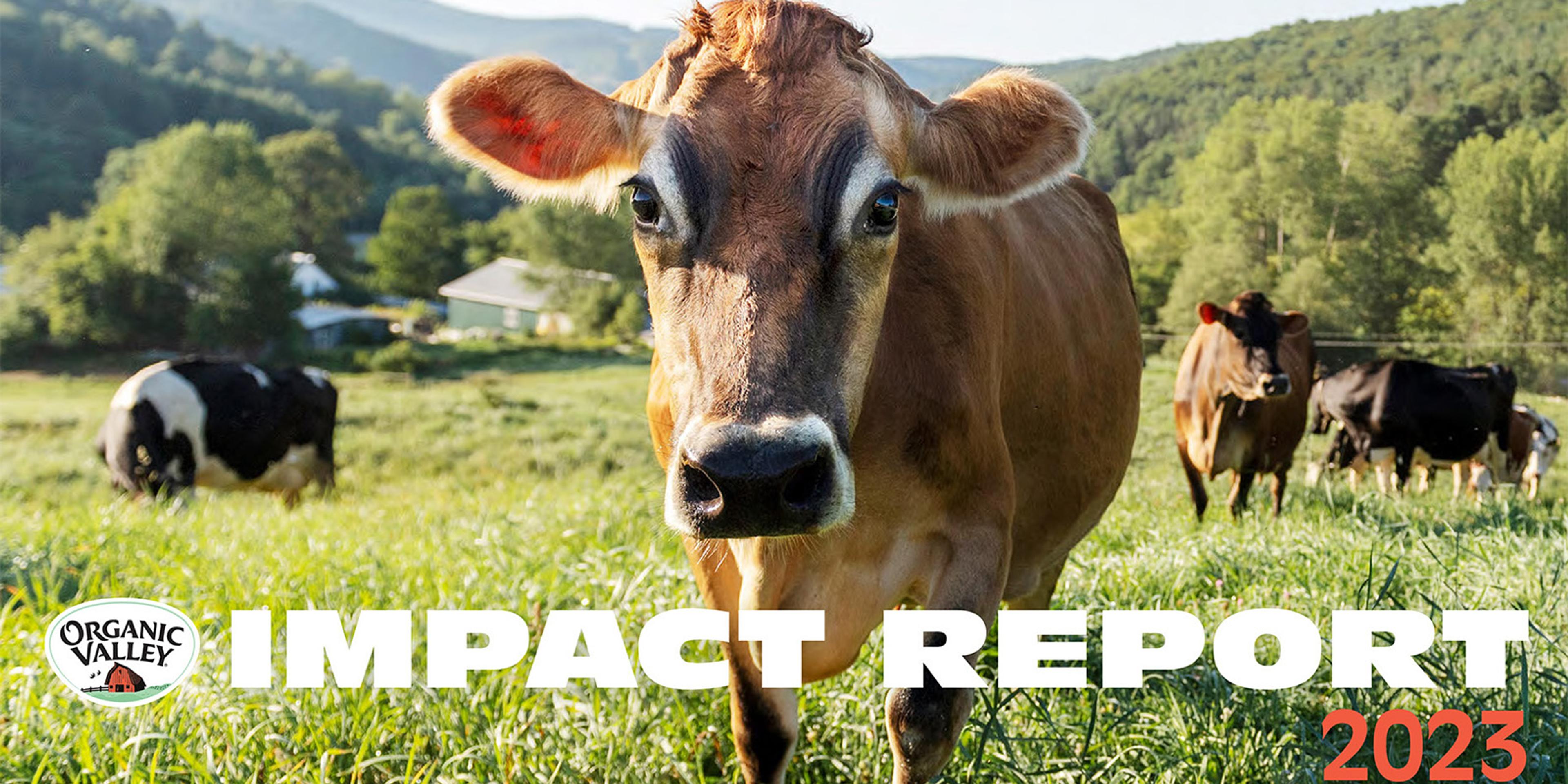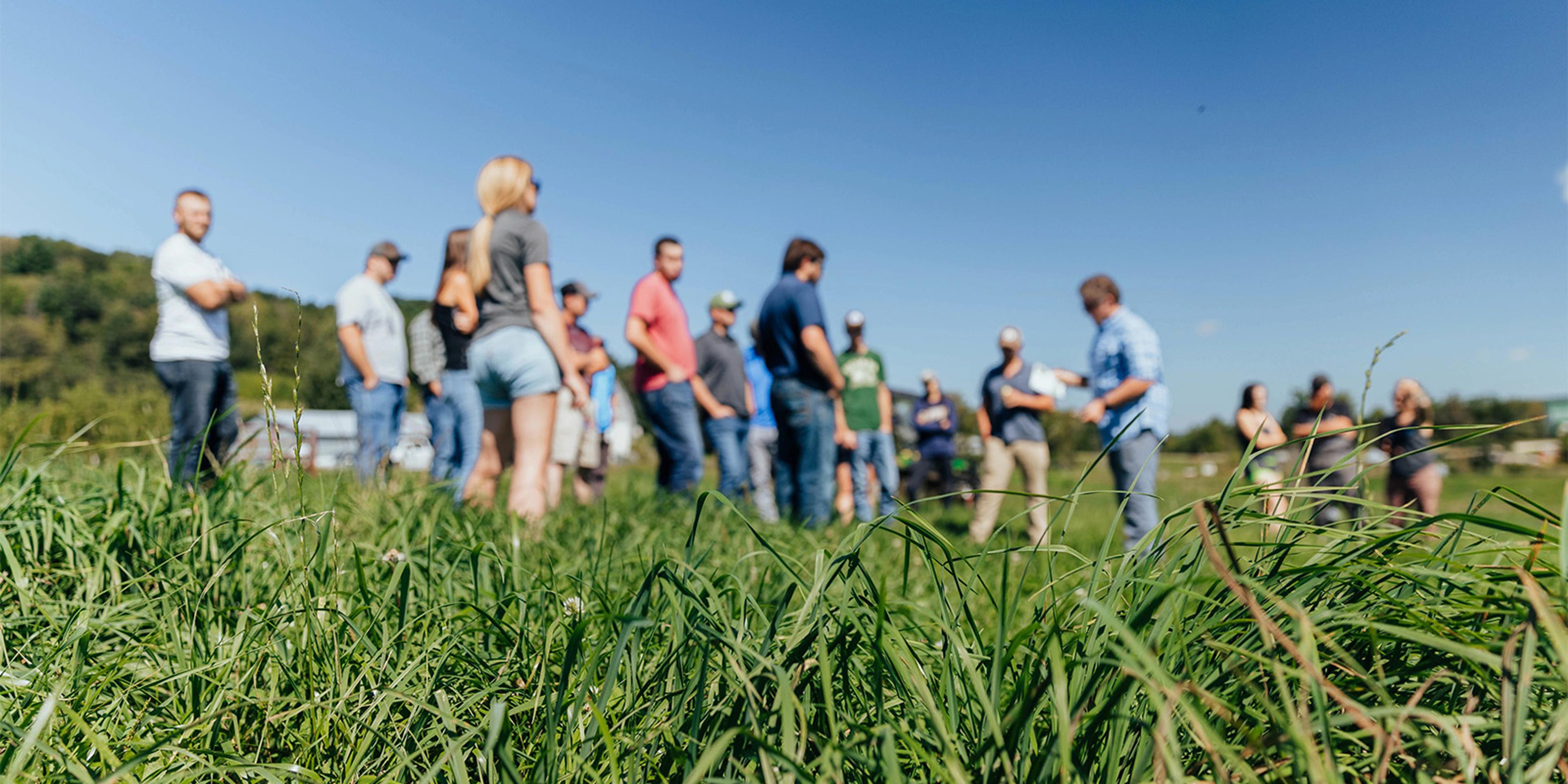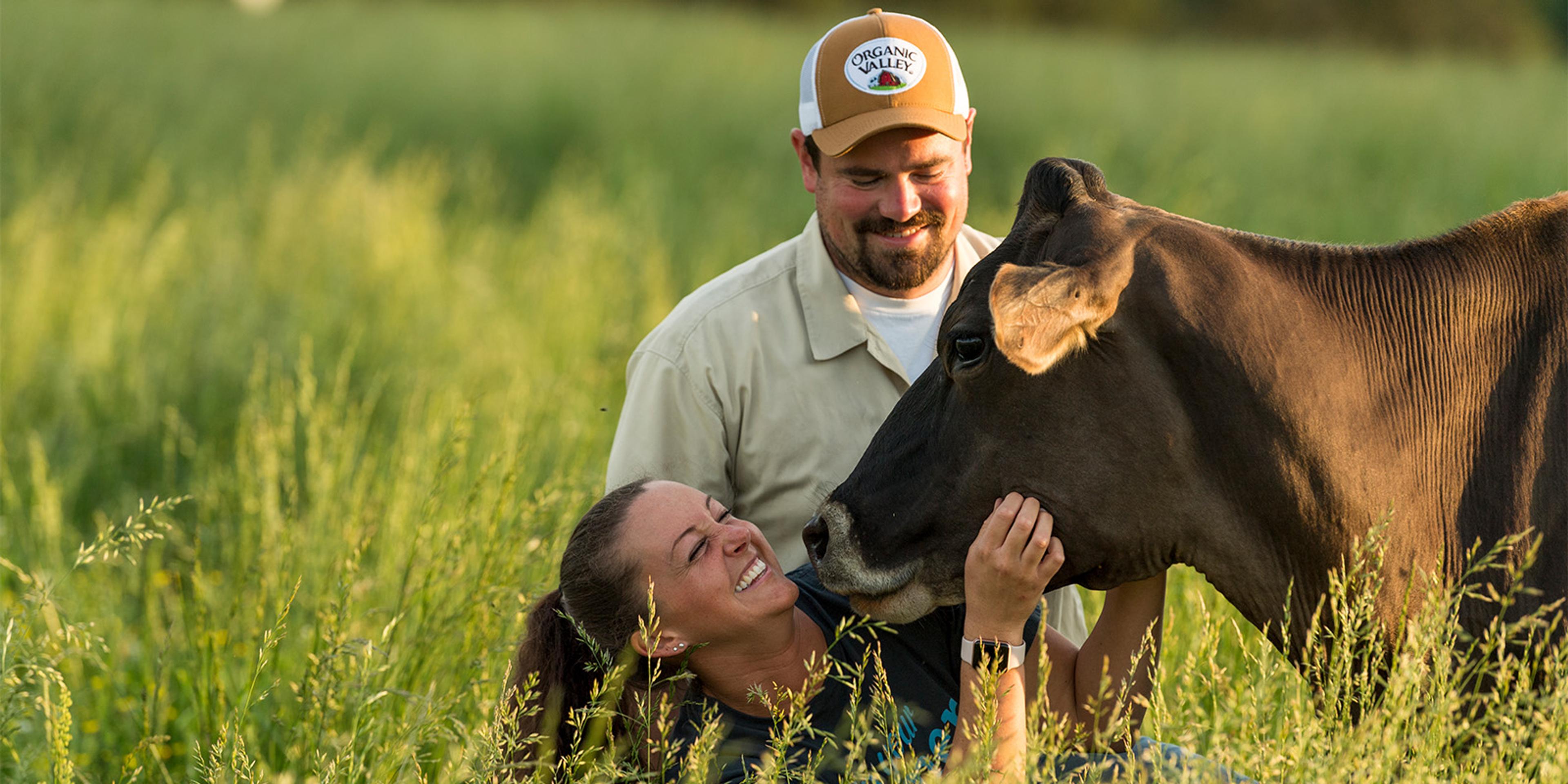
Rooted
The Truth: Organic Valley Isn’t Making Much of an Impact
What kind of title is that for a cooperative that is trying to showcase the way it makes a difference? At Organic Valley we know the lack of impact can be positive. We take great steps with our farmer-members to protect people, animals and the earth from heavy impacts.
Every two years, Organic Valley creates an impact report to share information about the cooperative’s innovative programs and, well, how the co-op is making an impact in a number of areas. And we certainly are making, or not making, one! Impact reports are chock-full of information, and it’s hard to determine what facets of this report are most important to you.
Today we are sharing a glimpse at ways Organic Valley supports and protects people, animals and the earth. We could talk about these topics until the cows come home, but we will simply summarize key points. Those interested in a deeper dive into all things Organic Valley, including supply chain information, an overview of our governance structure, and a message from one of our farmers, and our new CEO, can view the entire report here.
Here are the highlights:
Protecting People
Organic Valley is a cooperative of farmers across the country who share the same commitment to growing food the right way. Organic Valley works tirelessly to make sure farmers have a steady paycheck without having to mass produce milk. This allows them to remain small family farms and not sell out to conglomerates.
In 2022, more than 1,600 farms were members of our cooperative. About 1,400 of Organic Valley’s more than 1,600 small organic family farms are dairy farms — that’s 57% of all organic dairies in the U.S.! Farmers are caretakers of the mission; employees are the day-to-day decision-makers who advance that mission.
Another way Organic Valley cares for people is through donations. The co-op has donated the equivalent of 30 million meals of organic food since 2015. That’s
19 million pounds of organic food to organizations and communities facing a crisis. We also send organic food to areas impacted by natural and human-made disasters through our partnership with Grassroots Aid Partnership.

Organic Valley farmers and employees gather for an educational summit in Wisconsin.
We also recognize the importance of the people who power the co-op. Not only do our farmers receive a stable pay price, paying our employees a fair, living wage is important to us. And treating each other as equals is just as important. Our female-to-male pay ratio, leadership positions and number of men and women working at the co-op are nearly equal.
Beyond a paycheck, the cooperative provides paid parental leave for partners of all genders, wellness programs and strives to become a more diverse, equitable and inclusive organization.
Protecting Animals
Organic Valley farmers focus on allowing animals to behave like animals, expressing natural behaviors. Animals have access to the outdoors so they can explore their environment.
The cows are pasture-raised, which means they spend every possible day of the grazing season grazing. They spend more time outside than 95% of U.S. dairy cows. Farmers provide the animals a choice to explore their environment as they want.
Organic Valley’s average dairy farm is home to 80 cows. This is more than three and a half times smaller than the national average. Our family farms are small and the farmers know their animals and can tell if something isn’t quite right.
Our farmers practice preventative care and the co-op offers educational programs to keep farmers up to date on the latest animal health, behavior and welfare information. If something does come up, farmers have access to a team of in-house veterinarians that can help.

The Teague organic farm in North Carolina.
Because of the way we farm, animal care reaches beyond Organic Valley farm fences. For example, some farms use natural forms of fly control such as working with native bird species to control fly populations. This is a beneficial relationship for the birds, cows and farmers!
Home to millions of insects, birds, bees, butterflies, microbes and critters of all shapes and sizes, small organic family farms are refuges for life on earth, with many small organic family farms shown to have 34% more biodiversity compared to conventional farm averages.
Protecting Earth
We can’t talk about Organic Valley without talking about the earth. Organic Valley farmers understand the importance of working with natural relationships rather than against them.
Due to our organic farming practices, we have kept 540 million pounds of toxic chemicals off the land since 1988. It’s hard to visualize 540 million pounds, but you played a role in this massive achievement by supporting our products! Organic Valley farms comprise more than 460,000 acres that are not sprayed with toxic chemicals.
How many acres of Organic Valley dairy farms are in your state? Find out here.
Organic Valley farms average 24% fewer greenhouse gas emissions than conventional U.S. dairy farms.
The co-op is committed to becoming carbon neutral by 2050. We are developing an innovative program called the CROPP Carbon Insetting Program, which incentivizes and assists Organic Valley farmers in implementing regenerative, climate-smart farming practices like planting trees and composting. (You can learn all about it in the Impact Report.)
On-farm sustainability programs that meet, and sometimes go beyond, Natural Resources Conservation Service standards include tree plantings, improved manure management, renewable energy, energy efficiency, feed management, and enhanced grazing and cropland practices.

Biodiversity on the Pearson farm in Washington.
Environmental friendliness is also fostered at Organic Valley’s owned buildings and properties and more than 20% of our land is dedicated to protected pollinator habitats.
Check out the Impact Report for a number of ways the buildings and land are sustainable.
You Make Us Possible
It wasn’t easy to whittle down the information that would be tucked in the 25-page Impact Report. We are proud of the farmers who own this cooperative and the many accomplishments they have made over the last 35 years. We tried to capture that, but it is too much to fit in one place!
The co-op is dedicated to keeping small family farms in business by providing a stable, farmer-determined pay price for their goods. We support our farmers so they can protect the land, animals and plants and foster a healthy ecosystem. By focusing on the health of each part we also honor the health of you, the customer, and the environment.
Thank you for helping us not make a big impact. Through your support we can continue to take care of the things that are most important to us: people, animals and earth.
Related Articles
- Tags:
- working together,
- cooperative spirit,
- biodiversity

















